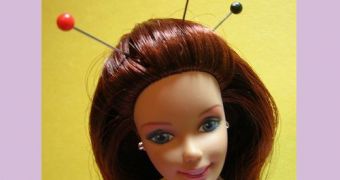An international team of researchers used functional magnetic resonance imaging to discover the effects of acupuncture on the brain's perception and processing of the pain, and they concluded that acupuncture is effective in relieving pain.
Thanks to the fMRI, they obtained pictures of the brain, while patients experienced a pain stimulus with and without acupuncture.
For the study, 18 healthy volunteers underwent fMRI, having an electrical pain stimulus attached to the left ankle.
Then, acupuncture needles were placed at three places on their right side – between the toes, near the thumb and below the knee, before the participants underwent a second fMRI, with the same electrical currents aimed at their left ankle.
The researchers then compared images and data from the fMRI sessions with and without acupuncture.
Lead researcher Nina Theysohn, MD, from the Department of Diagnostic and Interventional Radiology and Neuroradiology at University Hospital in Essen, Germany, said that “until now, the role of acupuncture in the perception and processing of pain has been controversial.
“Functional MRI gives us the opportunity to directly observe areas of the brain that are activated during pain perception and see the variances that occur with acupuncture.”
fMRI measures the minute metabolic changes that take place in an active part of the brain, while a patient is being exposed to an external stimulus or is performing a task, and this experiment concluded that the “activation of brain areas involved in pain perception was significantly reduced or modulated under acupuncture.”
When acupuncture was not used, the fMRI revealed an important activation in the contralateral supplementary motor area, somatosensory cortex, precuneus bilateral insula and ipsilateral somatomotor cortex during electrical pain stimulation.
Acupuncture helped reduce significantly the activation in most of these pain-processing areas of the brain.
Dr. Theysohn said that besides affecting the pain signal, acupuncture also influenced brain activation in areas that control the patient's expectations of pain, just like a placebo analgesic response.
She added that “acupuncture is supposed to act through at least two mechanisms—nonspecific expectancy-based effects and specific modulation of the incoming pain signal.
“Our findings support that both these nonspecific and specific mechanisms exist, suggesting that acupuncture can help relieve pain.”
This study was conducted in close collaboration with the Department of Complementary and Integrative Medicine at University of Duisburg-Essen, and the results were presented today at the annual meeting of the Radiological Society of North America (RSNA).

 14 DAY TRIAL //
14 DAY TRIAL //